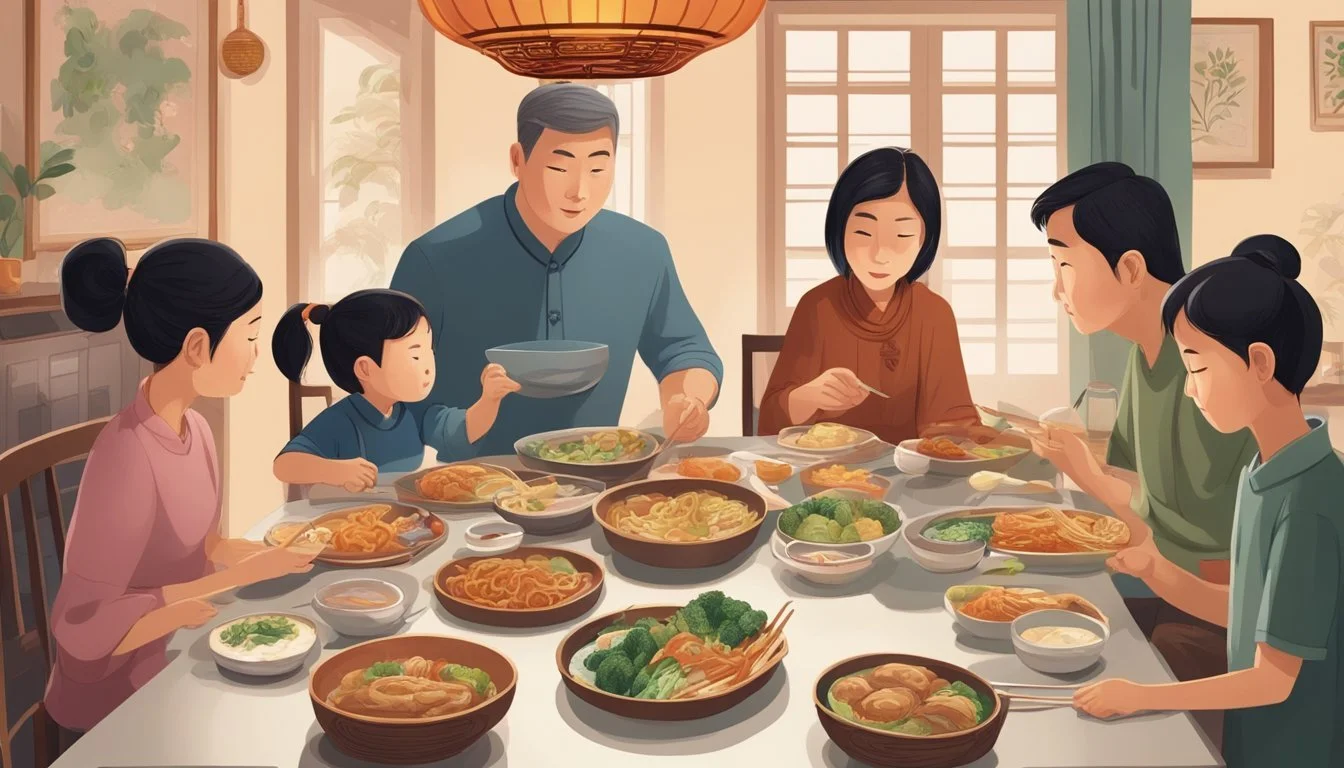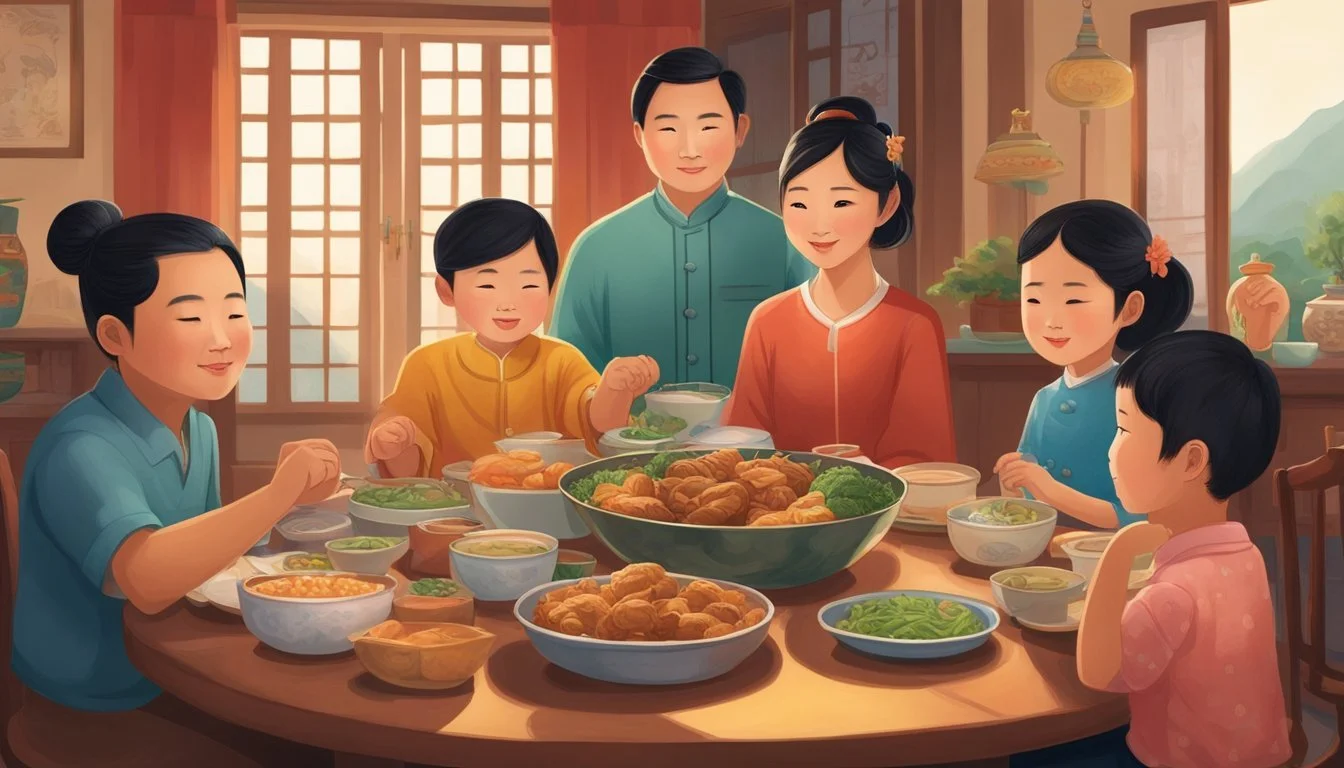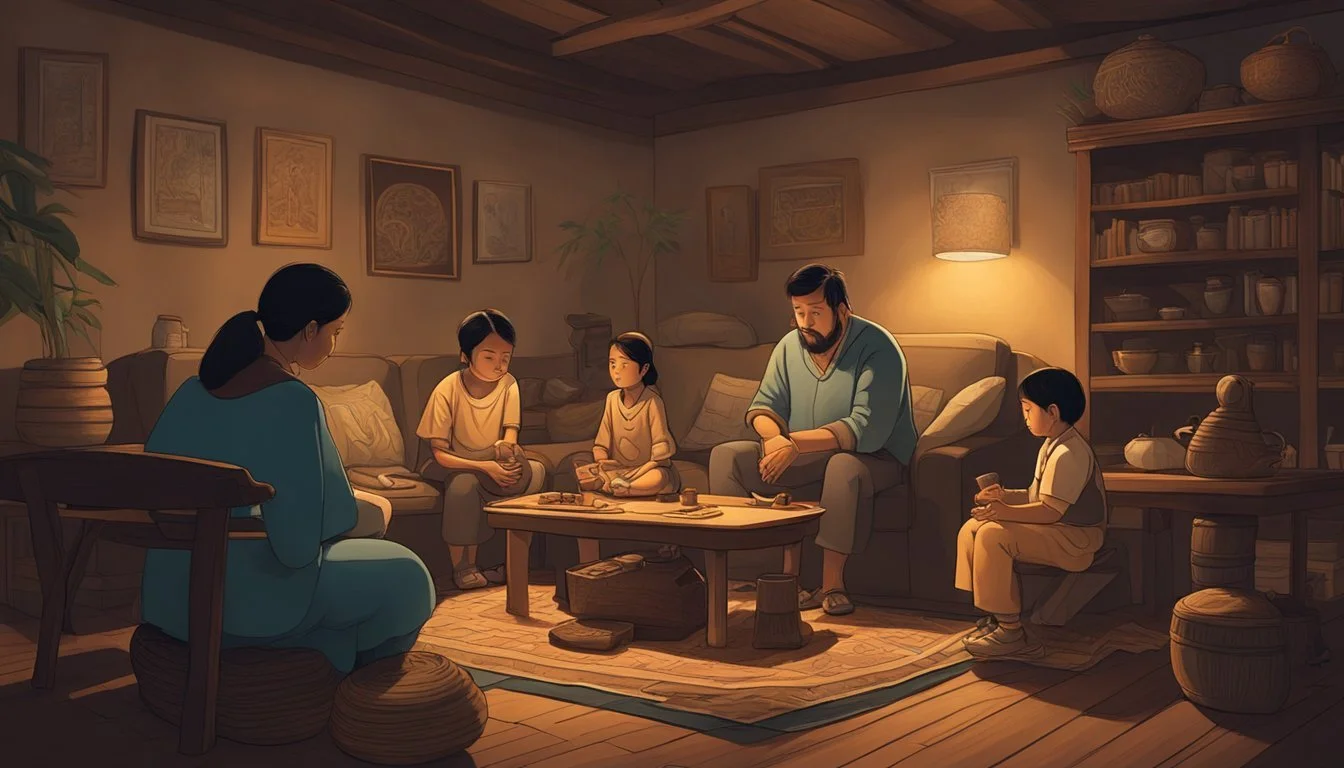The Farewell: A Family's True Struggle with Cultural Expectations
Navigating Tradition and Modern Values
"The Farewell" tells the poignant story of a Chinese-American family grappling with cultural expectations and the complexities of love. Directed by Lulu Wang, the film draws inspiration from her own experiences with her grandmother's cancer diagnosis. The family's decision to keep the prognosis a secret from the matriarch highlights the cultural divide between Eastern and Western approaches to death and family dynamics.
Wang's semi-autobiographical narrative explores the tension between individual desires and familial obligations. The film delves into the concept of "good lies" and the moral quandaries they present. Through its nuanced portrayal of intergenerational relationships, "The Farewell" offers a touching examination of cultural identity and the universal struggle to protect loved ones.
Background and Synopsis
"The Farewell" is a poignant film that explores family dynamics, cultural identity, and the complexities of love across generations. It draws inspiration from director Lulu Wang's personal experiences and cultural traditions.
Plot Overview
The film centers on Billi, a Chinese-American writer living in New York. She learns her beloved grandmother, Nai Nai, has been diagnosed with terminal cancer. Following Chinese custom, the family decides to keep the diagnosis a secret from Nai Nai.
Billi reluctantly travels to Changchun, China, for a hastily arranged family wedding. This event serves as a pretext for the family to gather and say goodbye to Nai Nai without revealing her condition.
Throughout the visit, Billi struggles with the ethical dilemma of concealing the truth. She grapples with her Western upbringing and Eastern cultural expectations.
Characters and Cast
Awkwafina portrays Billi, the conflicted protagonist torn between two cultures. Zhao Shuzhen plays Nai Nai, Billi's spirited grandmother unaware of her diagnosis.
Diana Lin and Tzi Ma take on the roles of Billi's parents. They navigate their own emotional turmoil while trying to maintain the facade.
The ensemble cast includes Chen Han as Hao Hao, Billi's cousin, and Aoi Mizuhara as his Japanese fiancée. Their wedding serves as the family's cover story.
Each character brings depth to the cultural and generational dynamics at play in this intimate family drama.
Production History
"The Farewell" began as Lulu Wang's personal story, first shared on the radio show "This American Life" in an episode titled "What You Don't Know."
Wang's experience resonated with audiences, leading to the development of a feature film. The project faced initial challenges, with some executives suggesting the addition of white characters to increase marketability.
Wang stood firm in her vision, eventually securing funding as an independent film. The movie was shot on location in Changchun, China, adding authenticity to its cultural portrayal.
"The Farewell" premiered at the 2019 Sundance Film Festival to critical acclaim. It went on to receive numerous awards and nominations, establishing Wang as a notable voice in contemporary cinema.
Cultural Themes and Representation
"The Farewell" explores complex cultural dynamics through a Chinese-American family's experience. It delves into the clash between Eastern and Western values, highlighting the nuances of cultural identity, generational differences, and contrasting approaches to illness.
Cultural Identity and Family
The film portrays the struggle of balancing Chinese and American cultural identities. Billi, the protagonist, embodies this conflict as a Chinese-American caught between two worlds. Her family's decision to keep her grandmother's cancer diagnosis secret reflects traditional Chinese beliefs about protecting loved ones from distressing news.
This choice creates tension for Billi, who was raised with Western notions of individual autonomy and honesty. The family gathering in China forces her to confront her cultural roots and reconcile them with her American upbringing.
The movie showcases how family bonds transcend cultural divides. Despite their differences, the Wang family comes together to support their matriarch, demonstrating the strength of familial love across generations and continents.
Generational Conflict
"The Farewell" illustrates the generational gap within immigrant families. Billi's perspective often clashes with her parents' and relatives' more traditional views. This conflict is evident in their differing opinions on concealing the grandmother's illness.
Younger family members, particularly those raised in the West, struggle to fully embrace certain Chinese customs. They question traditions that seem at odds with their more individualistic upbringing. Older generations, in contrast, adhere more strongly to cultural norms and expectations.
The film explores how these generational differences shape family dynamics and individual identities. It shows the challenges of preserving cultural heritage while adapting to new environments and values.
Perception of Illness in Different Cultures
The movie highlights contrasting cultural attitudes towards illness and death. In Chinese culture, as portrayed in the film, there's a belief that openly discussing terminal diagnoses can hasten death. This leads to the family's decision to withhold information from the grandmother.
Western medicine emphasizes patient autonomy and informed consent. This approach conflicts with the Chinese practice of protecting patients from distressing news. The film presents this dilemma without judgment, allowing viewers to consider both perspectives.
"The Farewell" also touches on how different cultures cope with grief and loss. The family's elaborate wedding ruse serves as a culturally appropriate way to gather and celebrate life in the face of impending loss. This approach contrasts with more direct Western methods of addressing terminal illness.
Film Aesthetics and Cinematic Techniques
Lulu Wang's "The Farewell" employs thoughtful visual storytelling and an emotive score to immerse viewers in its cultural narrative. The film's aesthetic choices enhance the emotional journey of the characters and highlight the cultural contrasts at play.
Cinematography and Direction
Wang collaborates with cinematographer Anna Franquesa Solano to create a visual language that reflects the film's themes. Wide shots of bustling Chinese cities contrast with intimate close-ups of family gatherings, emphasizing Billi's sense of displacement. The camera often lingers on characters' faces, capturing subtle expressions that convey unspoken emotions.
Muted color palettes dominate scenes in America, while China is depicted with warmer, more vibrant hues. This visual distinction underscores the cultural divide Billi experiences. Wang's direction favors long takes and static shots, allowing the actors' performances to shine and giving weight to moments of silence and reflection.
Score and Soundtrack
The film's score, composed by Alex Weston, blends Eastern and Western musical elements to mirror the protagonist's dual cultural identity. Soft piano melodies intertwine with traditional Chinese instruments, creating a haunting and nostalgic atmosphere.
The music often swells during emotionally charged scenes, amplifying the characters' inner turmoil without overpowering the narrative. Diegetic sounds of Chinese city life and family dinners add authenticity to the setting. Wang's strategic use of silence in key moments heightens tension and allows the audience to focus on the characters' non-verbal communication.
Critical Acclaim and Reception
"The Farewell" garnered widespread praise for its heartfelt storytelling and cultural insights. The film's nuanced portrayal of family dynamics and cross-cultural experiences resonated with audiences and critics alike.
Awards and Recognition
"The Farewell" received numerous accolades during the awards season. It earned a nomination for Best Screenplay at the 92nd Academy Awards, highlighting Lulu Wang's skillful writing. The film's success at the Sundance Film Festival in January 2019 marked the beginning of its critical journey. Awkwafina's performance garnered particular attention, winning her a Golden Globe for Best Actress in a Motion Picture - Musical or Comedy.
Other notable recognitions included:
Independent Spirit Award for Best Feature
American Film Institute Top 10 Films of the Year
Critics' Choice Movie Award for Best Comedy
Critical Analysis
Critics praised "The Farewell" for its delicate balance of humor and pathos. The film's exploration of grief and family bonds drew comparisons to the works of acclaimed director Hirokazu Kore-eda. Many reviewers highlighted the film's universal themes, noting its ability to transcend cultural boundaries.
The film's portrayal of the Chinese American experience was particularly lauded. Critics noted its nuanced approach to cultural identity, avoiding stereotypes often seen in Hollywood productions like "Crazy Rich Asians". Wang's personal connection to the story lent authenticity to the narrative, allowing for a deeper exploration of complex emotions and family dynamics.
Real-Life Inspirations and Cultural Analysis
"The Farewell" draws from director Lulu Wang's personal experiences and explores the cultural tensions between Eastern and Western approaches to family, illness, and death. The film provides a nuanced look at the immigrant experience and cultural expectations.
Truth in Storytelling
Lulu Wang based "The Farewell" on her own family's decision to withhold a cancer diagnosis from her grandmother. She first shared this story on the radio show "This American Life" in an episode titled "What You Don't Know." The film's tagline, "Based on an Actual Lie," reflects its roots in real events.
Wang's personal connection to the story lends authenticity to the film's portrayal of cultural differences. She masterfully captures the complexities of navigating two distinct cultural worlds as a Chinese-American.
Cultural Commentary and Perspectives
"The Farewell" offers a thoughtful examination of Eastern and Western cultural expectations surrounding family, illness, and individual autonomy. The film highlights the Chinese concept of collective responsibility in decision-making, contrasting it with Western individualism.
Through the character of Billi, played by Nora Lum (Awkwafina), the movie explores the immigrant experience and the challenges of straddling two cultures. Billi's struggle to reconcile her American upbringing with her Chinese heritage resonates with many second-generation immigrants.
The use of both English and Mandarin in the film underscores the linguistic and cultural divide. This bilingual approach adds depth to the characters and their relationships.
Conclusion
"The Farewell" explores complex themes of love, cultural identity, and family dynamics through its poignant storytelling.
The Impact of 'The Farewell'
The film resonates deeply with audiences by portraying a family's struggle with cultural expectations. It highlights the tensions between Eastern and Western approaches to terminal illness and end-of-life care.
The family's decision to conceal the grandmother's cancer diagnosis reflects traditional Chinese values of protecting loved ones from emotional distress. This choice challenges Western notions of individual autonomy and truth-telling in medical contexts.
"The Farewell" has garnered critical acclaim and commercial success, attracting US producers and distributors. Its universal themes of family love and cultural identity transcend borders, connecting with viewers worldwide.
The film's optimistic tone, despite its heavy subject matter, offers a nuanced perspective on navigating cultural differences. It encourages viewers to reflect on their own family traditions and cultural expectations.




